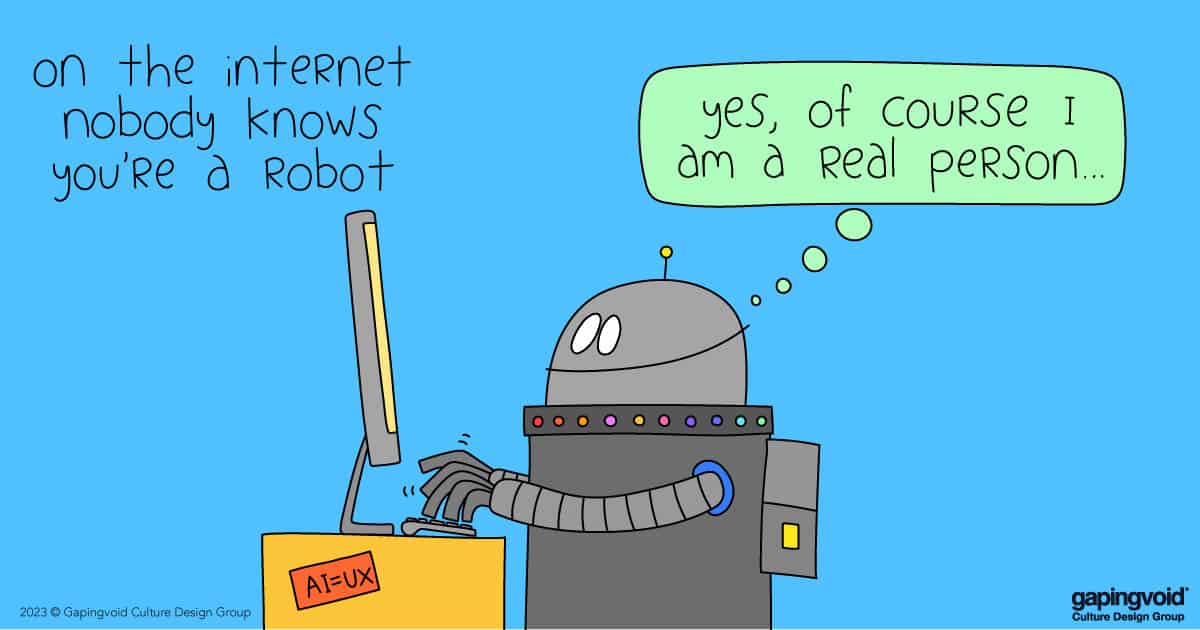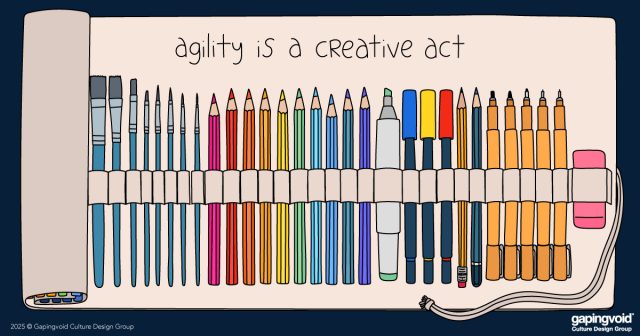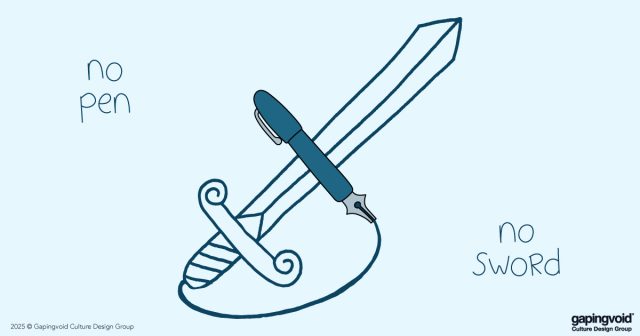
The technology industry is like any creative industry. The question is always, always, always, “what’s next?”
What will be the new thing after the Internet and Web 2.0?
Web 3.0? Blockchain? The Green Revolution? Zuck bet heavily that it was the Metaverse. Fortunately for his shareholders, he seems to have dumped that idea of late and pivoted his money and focus onto… you guessed it: A.I.
A.I. is the new, new thing, according to the usual suspects. It’s interesting how, for the past few decades, we’ve been hearing predictions of an A.I.-driven era of doom, gloom, and dystopia, with the occasional utopian vision tossed into the mix. Technologies were developed gradually and quietly. Momentum built slowly.
Then the dam broke.
Some strange threshold of “activation energy” was reached, and a deluge of A.I. applications suddenly flooded our markets and our minds.
ChatGPT. Midjourney, Dalle, and Dalle 2.0. Then Google’s Bard. And who knows what else is on the horizon? We’re not at the singularity yet, but we’re getting closer. And we’re not just speeding towards it. We’re accelerating.
When a technological breakthrough like this occurs, second-order innovations follow from the primary one. Some are expected, like Microsoft’s recently-announced AI assistant, Co-pilot, or Google’s AI App Builder.
But then there are the less obvious applications. Like interviewing. Or leading a company. The Chinese gaming company, NetDragot Websoft went so far last year as to appoint Tang Yu, an “AI-powered virtual humanoid robot” to the helm as CEO.
The implicit assumptions in these cases seem to be that everything valuable a person could learn about another person through conversation, A.I. can learn just as well. But this is a big claim with little backing.
The human brain has evolved over millions of years in the presence of other humans, and part of its highly nuanced, well-tuned, largely subconscious function is to make judgments about other people. Humans are unique, idiosyncratic creatures. We all have our own little slices of genius, and our own subtle nonverbal tells and signals, that broadcast themselves to other humans with brains evolved to interpret them.
As we’ve written previously, the CEO becomes the embodiment of a company’s culture, and it’s the one job that can’t be outsourced. Sure, you can leave writing or coding or even domain knowledge to the robots, but the CEO’s job (the human’s job really) is to create higher purpose, meaning, and magic.
It’s taken evolution millions of years to sculpt this sixth sense. Can AI replicate it in a few years?
We have a long history of trying to play God, and an equally long history of saying “This time it will be different.” It typically turns out badly.




Human led however helmed by tech superiority
“People worry that computers will get too smart and take over the world, but the real problem is that they’re too stupid and they’ve already taken over the world.”
― Pedro Domingos